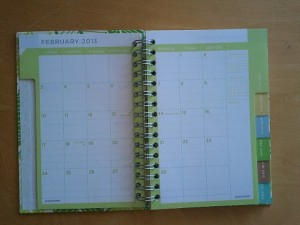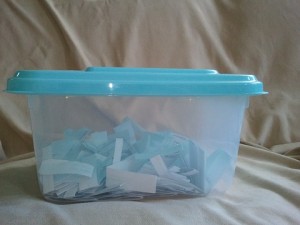
Ever since the Sandy Hook shootings a little over a month ago, gun control advocates and their opponents have been spotlighted in our national political dialog. I’ve found personally that I identify more with one side of the debate than the other, though my formerly firm position supporting gun control has eroded a little over the years. All the same, I’m willing to wager that whether you favor gun regulation or no, it’s difficult to understand some of the motivations and arguments of the National Rifle Association (NRA).
Frankly, I’m skeptical about the Constitutional arguments on both sides of the debate. While the pragmatic value of gun control is clear, the rights-based concerns also hold a reasonable amount of merit. The sad thing is, I understand the secondary motives of the NRA all too well, having experienced them myself.
Bearing weapons changes you in a fundamental way, and alters your very perception of reality.
Crime! And weapons!
And now it’s story-time…
Eleven years ago, I was living in a half-gentrified area of Oakland, CA, just a few blocks away from Lake Merritt. Like most of Oakland, this area was beset with high levels of property crime: during the winter, I’d frequently find the condensation rubbed away from my passenger windows by some curious burglar who never seemed to find anything of interest in my stock radio or in the piles of pointless paper in my backseat. Still, even though I’d sometimes hear the prostitutes calling or drug addicts might beg me for money on my way back to my apartment building, I’d never felt like I was in any real danger of being shot or mugged or any of a million other violent crimes.
That changed one January night that was no more remarkable than any other, aside from the fact that I’d actually bothered to attend a candle party. I had a candle-filled bag in one hand, and my purse in the other. When the man approached me, I was calm; I figured he was just on his way to his car.
“Don’t panic!” he said.
What? It was only then that I registered he was holding something vaguely pointed in the direction of my chest.
“Just hand me the purse quietly.” It was a pistol, I think. A small, evil, black thing.
All of a sudden, everything froze. I froze, and maybe I looked panicked, maybe I didn’t. I wasn’t, though. I’d gone cold, solid, logical. I scanned the buildings while hopefully pretending to look shocked. Maybe I actually was shocked. I still don’t know. Lights were on in all the buildings, and my mind flashed to what I should do next. Don’t scream for help, I’d read, because no one pays attention. Yell “Fire!” instead. I’d also read that you’re supposed to give up your money, your purse, your wallet, except, as my mind systematically categorized everything I’d need to survive a night outside.
Keys. In the purse.
Cell phone to call for help. In the purse.
Keys to my parents’ house. In the purse.
Address to my parents’ house. In the purse.
My odds weren’t looking so good, nor were my parents’ either, if this guy was more than just a mugger. I was damned if I was going to endanger them by giving anything up. I didn’t care if the man was holding dynamite; I’d fare better at his hands than spending the night outside in the cold in the middle of Oakland, hoping someone from my apartment building would find me alive and intact in the morning.
“Fire!” I screamed, turning back to him. “Fire! Fire!”
It was a chant in my head.
“Don’t scream!” He shook the gun at me. “Stop screaming! Give me the bag!”
He yanked one purse strap with his free hand, the gun still aimed loosely at me. I held the body of the purse, and he’d missed the second strap. I clutched it, still screaming, still chanting about a mythical fire. He tugged harder, and I gripped its bulk against my body until I could feel my fingers strain. He yanked, I pulled. I kept up the chant, feeling the fire burn me.
“Give it to me!” He ripped at the strap, and it finally gave way in his hand.
I collapsed against my neighbor’s fence, still screaming, as the man dropped the strap and ran toward the Lake. He’d had the strap, but I still had everything. Just as fast as he’d run away, I realized I was okay. I was safe. I could go home and relax. I took a deep breath which left me just as the neighbor’s useless old Chow barked and snapped at me through the fence after it had remained silent all through the fight. Stupid dog!
Arming myself.
I’d made it just fine through the police report, but I still ended up driving an hour and a half to Petaluma to spend the night with my then-boyfriend and now-husband. I drove another hour and a half to work the next morning. I was shaky, but more or less all right. Get some pepper spray, one of the cops had told me the night before, but I hadn’t seriously considered it.
Really, I’m a klutz. I’m also not very good at remaining paranoid about doing basic things like walking to my car at night. Mostly because I’m not good at remembering to be paranoid. I’d heard all the “safety tips” about putting your car keys in between your fingers so you can stab a night-time assailant with an impromptu weapon, but I only remembered to do that the first week after I’d learned the technique. Frankly, I’d never been bothered, so I figured such things were pointless. If I carried pepper spray, I’d either shoot myself in the eye or I’d forget to hold it at the ready.
That changed when I got the phone call.
It was another policeman, following up with some details. At the end of the questioning, I was a little shaky, but all right until the lecture.
“Next time someone holds you up, give them what they ask for!”
My gut had told me otherwise, and my mind had assessed the risk accurately.
“But I–”
“Just do it! Your life is more valuable than a purse.”
But the officer last night told me I’d done the right thing, and he’d said, “The dispatcher is in awe of you. She said, ‘But this one fought, and won!” I wish I’d had the words then. Instead, the reality came crashing down around my head, and what had felt like a major victory against fear instead turned into the paranoia I’d so dreaded. I went home from work early and in tears. A couple of hours later, I exchanged cash for a key-chain pepper spray canister.
I hadn’t won. I’d lost. And carrying a weapon was all I had to hold myself together. I’d thought I’d vanquished fear and ensured my own safety unarmed, but I wasn’t safe at all. The spray was my safety. My real safety. I couldn’t count on myself, not if what I’d done was wrong. I clutched the canister in hand and felt powerful again, because next time I’d be the injurer, not the injured.
Look! Over there! It’s a mugger! No, it’s a bush.
I had a new routine every time I headed for the car, and every time I left the car until I made it to “safety.” I’ve never been one for routines. The everyday and mundane usually puts me to sleep: I’m the only one I know of who gets bored getting dressed every day. You know, put the pants on the same way, one leg at a time, pull the shirt over your head… Booooring! This routine, though, was a weird solace.
- Put spray in hand deliberately before leaving the car.
- Check to make sure the nozzle’s pointed the right direction.
- Make sure the nozzle clears the fingers so residue doesn’t end up blinding me later if I do have to spray.
- Put one finger loosely enough on the trigger that it won’t fire by accident, but firmly enough that someone can’t wrestle it away.
- Lock the car door with the free hand, while aiming the spray away from the door and close it firmly behind.
- Carry spray informally at my side, so that it doesn’t look threatening to others.
- Keep hackles raised just enough that I’m ready to spray if any danger actually presents itself.
- At the door to apartment building or place of safety, drop the spray long enough to pull open or unlock said door.
- Sigh in relief that nothing happened.
Yep, paranoid. Every time I left the car, I followed the same routine until it became a ritual of a sort. I eyed everything and everyone suspiciously on my path, even during the day. Even if I slept without nightmares, the incident still gripped me by the throat every time I had to go somewhere.
The worst part was, I expected something else to happen. Statistically, the odds of being a victim of a violent crime are virtually nil– in California, currently, 1 in 243, and in crime-ridden Oakland, the chances of being a victim of a robbery are 9 in 1,000. Again, not particularly likely. But I knew I would be again, I could feel it. I clutched my crutch with all my heart and will. And next time, I’d do some damage, all in the guise of protecting myself.
Except nothing happened. Six months later, after watching Bowling for Columbine, I finally decided to put my weapon aside. When I did, the world almost seemed to shift.
Deep breaths of relief.
Finally, my chest loosened when I put the spray away in a drawer. I could park and walk without fear, and even though I did the key through the fingers trick a few times after, I suddenly remembered what it was to feel secure. I could finally bask in my victory, just a little, and as the days went uneventfully by, I felt my world return.
I was safe, just as most of us are, almost every day.
More than that, that belligerence within me died as well. Once I let go of the weapon, my desire for revenge seemed to dissolve as well, like a toxic vapor. I could go about life, unarmed, and unencumbered. And, more than that, I could finally recognize that I actually had done the right thing at the time when I’d fought my mugger. He’d been more afraid than I had as I remembered the way his voice had trembled. The way the gun had quaked in his hands. The way the likely toy gun had wavered up and down as he’d threatened me.
I’d built my world and my perception around the presence of my weapon. I’d allowed it to narrow my perspective until all I could see around me was threat and flight and fear.
Debates, debates.
I’m guessing something similar happens in the minds of those who do a concealed or open carry. They’ve got weapons, armed against a dangerous and unpredictable world, and they’ll use them.
It doesn’t matter how statistically unlikely it is that they’ll ever suffer any crime, because the world is dangerous, and they’re ready. And they want us all to be just as ready. They’ll risk accidents and theft of said firearms because it’s better to be prepared, even if there’s really nothing to prepare for. It doesn’t matter that they’re just making the world more dangerous for the rest of us. Who knows how much danger I put innocents in carrying around something far less lethal? To think about accidentally pressing that trigger, just because I was ready still sends chills down my spine.
I get where they’re coming from, I really do, even if it frightens me.
What this means for the whole gun control debate, I’m not sure. But I do get both sides, even if I don’t want to.






